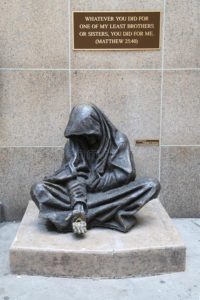Thoughtful Garment
by Helene Lara
It was hard to forget that warm, damp afternoon in the middle of a monsoon summer.
I inched toward the closet, knowing my destination was to its very far corner, where a box concealed by a ragged-aged blanket lie. I gently removed the old quilt and lifted the cover of the flat-square-box. Its corners frayed from countless openings and closings.
There, neatly folded, was my pink and blue kurti I purchased in India some years ago. The neckline adorned in embroidered gold leaves. The sleeve cuffs matching the same. The bottom hem and side slits decorated with tiny elephants in bronze thread.
I remember when I wore it to my best friend’s puja, a ritual performed to celebrate the purchase of her new house in Mumbai. During the puja, a piece of bronze thread had come loose and twirled through the air before being carried off by a gentle wind. I watched it dance through the marbled gray sky—-knowing my best friend was about to do the same, to dance and whirl around in her brand new home with her new husband.
Through our time together in college, I never thought I’d be saying goodbye and she’d be moving 7,500 miles away from me.
Sometimes, I put on the stylish kurti, play a classic Bollywood tune and dance in my living room with all-the-freedom in the world. Listening to the rhythmic drums weaving between sharp melodic sounds of a lovestruck chanteuse, I tap and twirl my feet. Hips and shoulders zigzag alongside the vibrating beat. Hands stretched out, long and high. I’m swept away to another time.
I feel the hot air of the overcrowded city, the heavy wet smell of sidewalk corridors and street vendors peddling savory treats. Intoxicating scents of cardamom and clove. Mango and chai. Black pepper and licorice. Sandalwood and rain.
I shimmy freely through my living room to remember that day, to remember our friendship, then collapse onto a heap of pillows on a pale blue sofa, before gently putting the floral printed dress back in the box for next time.

 End of Retreat Colloquy
End of Retreat Colloquy